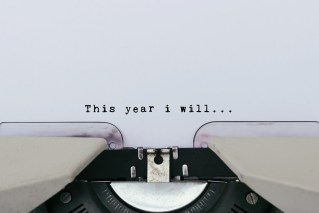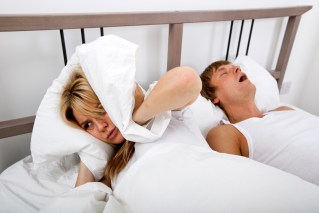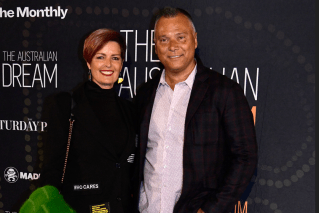How Aussie blokes have learnt to hug

I find myself in the embrace of other men more and more often of late. It’s a strange thing to realise and I must admit I kind of like it. Sorry Dad. All of a sudden, it seems, the other men around me have become much more… touchy-feely. I’m not sure when or how it started but my male friends have started hugging.
I’m not sure when or how it started but my male friends have started hugging.
It’s not just us. Other heterosexual men are joining their gay brethren and hugging as well. It’s a new greeting for my social circle, and I reckon for the Australian male in general. And so, while it is important to talk about how men may be reluctant to share their feelings, as in The New Daily’s article Unfair trade: another reason blokes must get help, society should also recognise that men are embracing their sensitive sides.

Jack Gunston of the Hawks hugs it out at the 2013 AFL Grand Final.
Growing up, I paid close attention to the masculine traits of my father – a coal miner and rugby league player from Newcastle – and tried to replicate them as best I could. The standard greeting between he and his mates was an attempt to cripple one another with a vice-like grip, accompanied by a grunt.
My grandfather was a different kettle of fish again. He would just sledge you, dry as salt, with a barrage of insults. There was no need for self-reflection in his house. So a hug from another man is a new sensation.
A hug from another man is a new sensation.
I’m fairly certain I’m not the only heterosexual male who is regularly met with open arms. I’m not that good looking.
Men’s health researcher Anthony Brown, of the University of Western Sydney, has noticed the increased level of affection between men too.
“I’m in my 40s and it’s something I’ve observed as well,’’ he says. “Twenty years ago it wasn’t the done thing, and now you see men of all ages really meet and greet with a hug.”
“I look at men of all generations and see things changing. I think we’re living in less uptight times and men are feeling more comfortable expressing the feelings they had always felt.”
Brown, a PhD candidate, calls the stereotyped ideas of men as bad communicators who are devoid of emotions “dangerous lies”. Dangerous because they made men feel as though they had to replicated those traits to be masculine. Those stereotypes may not always have been the common ideal of male identity, Brown says. It’s likely they grew from the 19th Century, influenced by a combination of factors; one being the criminalisation of homosexuality in many Anglo cultures.
“There are recordings that almost a day after the Oscar Wilde case, men were walking down the street a few feet further apart from one another,” Brown says.
But it’s funny how that fear didn’t stretch to football fields or men’s change rooms, where a slap on the bum or group shower has long been a norm.
Other factors were the psychological effects of two world wars and capitalism’s division of labour.

A fine bromance at the Rugby League World Cup Final at Old Trafford.
Stereotypes that can be loosely classified by the “stiff upper lip”, “closed book” and “absent bread winner” labels have been particularly damaging to men’s health over the years. They influenced a few generations of men to abandon paternal care for long hours at work, feel they couldn’t show emotion and believe being masculine meant not asking for help or talking about personal problems.
But these character flaws are changing. Co-founder of the month-long men’s health campaign Movember Adam Garone has noticed changes in male relationships as well. As a former officer in the Australian army, and a businessman, he knows something about masculine relationships.
“Even my dad,” he says, “is growing a moustache for Movember now and the other night we were out at dinner and he said he had been for a PSA (prostate test) and a blood pressure test.”
“This is a conversation I’d never had with my dad before. I really do think men are coming of age.”
I really do think men are coming of age.
Hugging and talking about “feelings” may not be taking off in every enclave of masculinity but it’s clearly doing the rounds. I first noticed the trend while living with university friends of my now long-term girlfriend in Sydney. Dylan didn’t shake hands but met everyone with a warm hug.
The handshake didn’t enter consideration and in hindsight it would really feel absurd to shake hands with the bloke. In fact, handshakes now seem absurd in general. Why not touch feet, or noses and foreheads as Maori men do?
Wikipedia tells me the handshake stretches back to ancient Greece and was probably a sign the hands held no weapons. Well you can’t hold many weapons while hugging with both arms. So get with program fellas, hugs are the new shakes.
Callan is a journalist and post-graduate cultural studies student / researcher at the University of Sydney.








